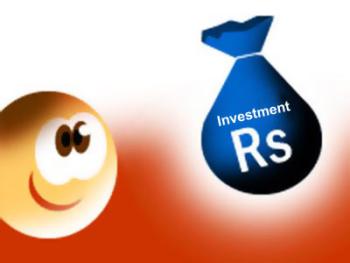
2009 was an eventful year and as we look back there were many landmark personal finance news and developments that will accompany us into the New Year. It is important to understand their impact and learn so that we become better at managing our finances and investments.
1. Recession and loss of jobs
The recession in the last one and a half years led to a record level of job losses and unemployment. For the present generation which has been fed on all round and consistent economic growth, this was difficult to cope up with.
It has taught a very important lesson of having an emergency fund.
Keep aside at least 3-6 months of expenditure to deal with situations like these. It will also useful for medical emergencies and other unfortunate events.
www.investmentyogi.com is a one-stop personal finance website which helps in managing finances, investments and taxes through services like financial planning, online tax filing, budgeting and 'Ask the Expert'.

We saw a dramatic free fall of the indices early this year. It started in October last year and culminated in January 2009 with the Satyam scam being icing on the cake. Many retail investors got slaughtered and lost a lot of wealth. For the young generation it's very important to take lessons from this.
Remember that equities are high risk- high reward investments -- you should not get carried away during boom times. Never invest a lump sum. The best way to invest in equities is through a SIP in an equity Mutual Fund with a history of good performance.
Even if you invest in equities directly don't get excited by rising markets, choose some quality companies and buy at every dip. A fall in the market should be looked as an opportunity to enter.
www.investmentyogi.com is a one-stop personal finance website which helps in managing finances, investments and taxes through services like financial planning, online tax filing, budgeting and 'Ask the Expert'.

So far there has been hardly any repository of transactions and repayment records of individuals. It made the task of lending tough for financial institutions which also led to enhanced default risk. Lending costs and barriers are high and this has traditionally been passed on to the consumer.
A person with an impeccable credit record and a defaulter were treated as being in the same boat , as there was no public credit history to consult. With the establishment of CIBIL (Credit Information Bureau India Limited) this is set to change.
From this year it is possible for lending institutions to access your borrowing and repaying history. In future, you will be able to leverage your good payment record to get loans and credit cards at rates lower than those offered to others and with lesser paperwork. Your repayment record will become an important indicator as it will stay with you.
www.investmentyogi.com is a one-stop personal finance website which helps in managing finances, investments and taxes through services like financial planning, online tax filing, budgeting and 'Ask the Expert'.

The government released a comprehensive discussion paper and draft of the new Direct Tax Code to revamp and simplify taxes and their administration throughout the country through several radical changes. It is supposed to be implemented in FY 2012 but it will be worthwhile to understand the implications on individual income tax now in order to be prepared.
The Tax code proposes a significant increase in the tax slabs for personal income tax, which, if implemented, will result in a meaningful increase in disposable income for you. Annual income up to Rs 1,60,000 will attract zero taxes whereas it proposes 10% tax up to an income of Rs 10,00,000.
Tax deduction limit will be raised from Rs 1,00,000 to Rs 3,00,000 but the tax liability will have to be borne when you withdraw investments from instruments like PPF, insurance etc. Also the tax incentive on home loan interest is going to be withdrawn.
www.investmentyogi.com is a one-stop personal finance website which helps in managing finances, investments and taxes through services like financial planning, online tax filing, budgeting and 'Ask the Expert'.

By abolishing the entry load (which used to be 2.5 per cent) in Mutual Fund investments, SEBI has ensured that more of your money will be invested by the fund manager. This was a very investor friendly change and will go a long way in protecting retail investors' interests.
It also means that distributors will try to earn fees for their advice and hence will be incentivized to give accurate advice rather than promoting schemes which offered them superior brokerage commissions in the past, but may have been less helpful to their clients.
SEBI also ordered that 'The distributors should disclose the commission, trail or otherwise, received by them for different schemes/ mutual funds, which they are distributing or advising the investors'.
6. MF transaction on NSE platform
Buying, selling and keeping funds just got simpler as now you can buy/sell at the click of a button using your demat account. If you don't have a demat account, you could walk into any broker's office with forms, Know Your Customer details like an address and signature proof, PAN card copies and invest.
This will help the fund houses reach more people regardless of geography and cut costs by way of reduction in paperwork. As an individual it means easier portfolio management as you will get consolidated statements for your equity and MF investments. Check the transaction costs with your broker though.
www.investmentyogi.com is a one-stop personal finance website which helps in managing finances, investments and taxes through services like financial planning, online tax filing, budgeting and 'Ask the Expert'.

People receiving gifts, in cash or kind have to pay tax now, if the value exceeds Rs 50,000.
Until now, income tax was levied only on cash gifts above this amount. However, a notification issued by the Central Board of Direct Taxes (CBDT) said the revised norms will come into effect from October 1, 2009.
It means that if you receive high value gifts then the value of these gifts will be added to your total income and the corresponding Income Tax will be deducted. These types of gifts will be considered as income from other sources from assessment year 2010-11 onwards. However gifts exchanged within the family will not be impacted by this change.
www.investmentyogi.com is a one-stop personal finance website which helps in managing finances, investments and taxes through services like financial planning, online tax filing, budgeting and 'Ask the Expert'.

Under the 2009-10 Budget, fringe benefit tax (FBT) got abolished.
While this was favourably received by the finance departments of companies, the impact on your personal finances may not have been optimal. Under the new regime all the fringe benefits offered by your company has come under the taxable bracket thereby increasing your tax liability.
In short the FBT has been passed on from companies to the employees. You might need to have a relook at the salary structure if you haven't done so already.
www.investmentyogi.com is a one-stop personal finance website which helps in managing finances, investments and taxes through services like financial planning, online tax filing, budgeting and 'Ask the Expert'.

The Pension Fund Regulatory and Development Authority (PFRDA) launched the Tier II investment account of the New Pension System (NPS) for government as well as non-government employees.
Unlike the Tier I account in which investors' funds are locked in till they are 60 years of age -- the vesting stage -- the Tier II account offers more flexibility. It puts no limits on the number of withdrawals, but has fixed a minimum balance limit of Rs2,000.
This limit is waived off whenever the money is redirected to the Tier I account. Here you get option of 1 equity fund and fixed income and govt securities. Since there is no lock in period, tax exemption is missing. If you don't have an EPFO (Employee's Provident Fund Organisation) account, you should put some part of your money in NPS in addition to PPF.
www.investmentyogi.com is a one-stop personal finance website which helps in managing finances, investments and taxes through services like financial planning, online tax filing, budgeting and 'Ask the Expert'.

Transactions where both the card and card holder are not present at the point of sale, or are done through internet or telephone, are known as 'Card not present' transactions.
The RBI issued a directive to credit and debit card issuing banks asking them to provide additional security measures for card transactions with an objective of combating fraudulent transactions. It became effective from Aug 1, 2009.
Your credit cards just became much safer and immune to online frauds.
www.investmentyogi.com is a one-stop personal finance website which helps in managing finances, investments and taxes through services like financial planning, online tax filing, budgeting and 'Ask the Expert'.

In the last few weeks of 2009 gold touched new highs reaffirming faith in this yellow metal.
Investors across the world have been hoarding gold to hedge against weakening dollar. The current price level was unprecedented and it made many people realize the importance of diversifying your asset allocation and looking at Gold as an investment.
When you do your asset allocation make sure, you think of gold. is advisable to invest in gold through ETFs because of the many benefit vis-a-vis conventional avenues.
www.investmentyogi.com is a one-stop personal finance website which helps in managing finances, investments and taxes through services like financial planning, online tax filing, budgeting and 'Ask the Expert'.

Insurance buyers will no longer have to foot the bill for agent commissions, if the government accepts the game-changing recommendations of a committee headed by D Swarup, chairman of the Pension Fund Regulatory and Development Authority (PFRDA).
It's a six member committee which was appointed to prescribe common minimum standards for financial advisors.
The committee has recommended that insurance agents be disallowed from loading commission on to policyholder's premium. If accepted this could have a very favourable impact on buyers of insurance policies. It will also reduce marketing bias towards ULIPs and endowment policies.
www.investmentyogi.com is a one-stop personal finance website which helps in managing finances, investments and taxes through services like financial planning, online tax filing, budgeting and 'Ask the Expert'.